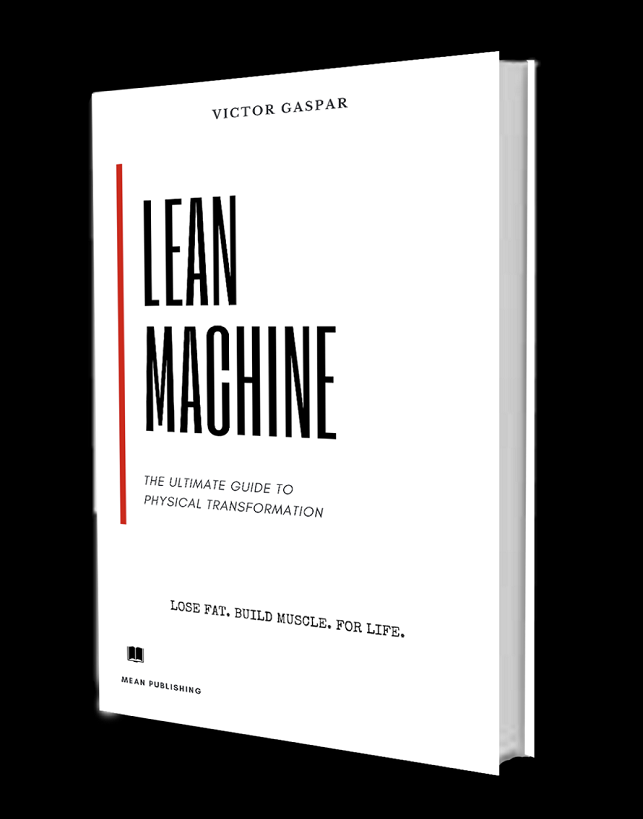
Weight-loss is a very straightforward process.
Consume less energy than your body expends and you will lose weight. It’s a simple equation, really. Simple doesn’t mean easy, however. If it were easy everybody would be in phenomenal shape.
In order to achieve long-term success, you have to make dieting an integral and, yes, enjoyable part of your lifestyle. It’s not a 4-week or 12-week assignment. It’s not a “transformation challenge”. It’s a lifestyle.
But that’s not why you clicked on this article, right? You want the details. You want numbers. You want to know how much you should eat (down to a single calorie), how many grams of protein, carbs and fat to consume each day for best results. You want the optimal macros for fat-loss.
No such thing.
There simply is no one-size-fits-all solution to fat-loss. If you follow the 3 steps outlined below, however, you’ll get damn close to your personal optimum. Stick to these rules and learn to make your diet work for you instead of against you.
1. Define Your Calorie Target
How much should you eat on a fat-loss diet?
Theoretically, you could eat 500 calories a day and you’d lose weight, fast. The problem is, apart from crushing your metabolism and losing your sanity, you will sacrifice a substantial amount of muscle mass and end-up looking the same (or worse even) at a lower body weight. A condition aptly named skinny-fat syndrome.
Don’t go down that road.
The objective is to consume sufficient energy to maintain metabolic integrity while forcing the body to burn fat for fuel.
Eat less, but eat enough. Here’s how you do it: Take your bodyweight in pounds and multiply it by 12-13 (bodyweight in kg x 26-28). That’s your daily calorie intake. If you’re currently 150 pounds (70 kg), you should consume between 1800-1950 calories a day. Stick to the low-end if you’re mostly sedentary (desk job, very little daily activity) or want to speed up the process.
- BW in lbs X 12-13 = your daily calorie intake
| Bodyweight | Daily Calories |
| 150 lbs (70 kg) | 1800-1950 calories |
| 200 lbs (90 kg) | 2400-2600 calories |
This will put you in a moderate energy deficit. If you have a lot of weight to lose, take your goal bodyweight and multiply that by 10. As you get leaner you’ll have to adjust your calorie intake to keep dropping body-fat, but there is no need to ever go below BW x 10.
After establishing your calorie target, you need to make sure you’re taking in the right amounts of protein, carbs and fats.
2. Get Sufficient Protein
Protein is the most important macronutrient in your diet. During a calorie deficit, it will minimize the risk of muscle loss and keep your metabolic rate elevated. In addition to that, protein is more satiating than fat or carbohydrates, keeping you fuller for longer.
-> Aim for 1-1.3 grams of protein per pound of bodyweight
(2.2-2.8 grams per kilogram of BW = 150-200 grams of protein for a 150-pound athlete).
Getting sufficient protein in your diet is critical. But you can’t live off of chicken breasts and tuna salads alone. You need the right balance of macronutrients to support fat-loss and fuel everyday performance. You need enough carbohydrates, fats and protein to be at your best.
3. The Rest? Up to You
After establishing your calorie and protein requirements, the rest is pretty much up to you.
I strongly advise against a low carb or low fat diet, however. Do not fear carbs nor fats. Both are essential to proper hormone production, physical and mental performance. As far as weight-loss and body composition are concerned macronutrient distribution (high carb vs. high fat) is secondary as long as protein intake is adequate.
Fats don’t make you fat. Sugar doesn’t make you fat. Overeating does. You can eat whatever the hell you want as long as you base your diet on nutrient-dense options, get sufficient protein and maintain negative energy balance.
If you’re using an app to track your macros (i.e. MyFitnessPal), a 40/30/30 or 35/35/30 ratio of carbohydrates/protein/fat is a good place to start.
Lean Machine Macros:
- Bodyweight in pounds x 12-13 = Daily calorie intake
- 1-1.3 grams of protein per pound of bodyweight (2.2-2.8 grams per kilogram of BW)
- A minimum of 25% of calories from fat
- Get the rest of your daily allotted calories from carbohydrates
- Never eliminate macronutrients from your diet (i.e. ketogenic diet)
This is as close to “optimal” as you’ll get. Keep in mind that your requirements will change over time. Higher activity levels warrant a higher calorie (especially carbohydrate) intake, while individuals leading sedentary lifestyles can go lower in calories.
 Grab your copy of LEAN MACHINE today and uncover the secret science behind physical transformation. Learn why your current diet and fitness program is making you weaker and fatter.
Grab your copy of LEAN MACHINE today and uncover the secret science behind physical transformation. Learn why your current diet and fitness program is making you weaker and fatter.
LEAN MACHINE cuts through the industry BS with elite level tactics and strategies that will help you: Lose fat. Build muscle. For life.
Thank you for reading
Victor
Great text!
Counting macros for weight loss is a tactic popular among many people who want to cut down some extra pounds.
It is much better than counting calories, I agree.
Dear Victor,
Thank you so much for sharing this with me. You’ve helped me so much.
Keep up the good work!
Greeting from the Netherlands.
My pleasure.